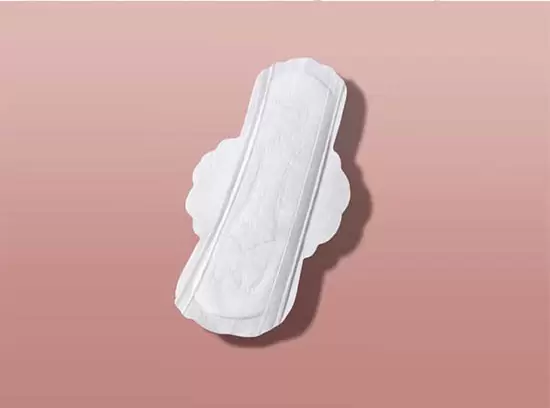Sanitary pads are absorbent substances, mainly made of high polymer and high polymer composite paper formed by cotton, non-woven fabric, paper pulp or above materials. The design of the side is mainly used to prevent side leakage because when used, it will present a certain angle with the tampon body, which is easier to produce friction with the groin. Therefore, the soft side sanitary pads are favoured by women. Wholesale sanitary pads are divided into three layers, namely surface layer, absorption core and bottom layer. The adhesive on the back of the tampon is an impervious material, which can retain menstrual blood in the tampon and absorb menstrual blood from the vagina when a woman has her period.
1. The prototype of sanitary pads
(1) Egypt: Use softened papyrus leaves as tampons. In 1550 BC, soft cloth was put into women’s vaginas in Egypt to prevent pregnancy. Experts speculate that these soft cloth were also used to cope with menstruation, which may be the first generation of “sanitary pads” we know of.
(2) China: Chinese women use a long white cloth towel. When menstruation comes, it is used under the body to absorb blood. When it is replaced, it is cleaned with water and alum.
(3) Greece: The sackcloth is wrapped around the wood as a tampon.
(4) Africa: Women in some places use soft feathers and cloth pads on the lower body, and collect the feathers and cloth pieces after use in a small wooden bucket.
(5) The United States: The modern version of the sanitary pad is said to be invented by an American man who loves his wife very much. He accidentally found that a soft cloth can be used to wrap up the clean cotton fibre and absorptive pulp to make a long strip of cotton pad, effectively reducing the pain and inconvenience of his wife’s period. This kind of cotton pad began to be popular in Europe and the United States in the 1940s and gradually developed into products made of disposable materials.
It is also said that women in ancient times had no ecological sanitary pads to use, but now we have organic sanitary pads wholesale. So women in the cave age sometimes directly used sea sponges or made sanitary pads with grass and other things to use. Nowadays, as one of the professional sanitary pads manufacturers in China, we provide bulk sanitary pads at a reasonable price, welcome to consult.
2. Sanitary pads that can be washable
In the 19th century, which is the “washable tampon” stage, women would bag cotton wool or scraps of cloth into so-called “scrap bags” for use as tampons. In addition to using a rag bag, women in that era would wear a “sanitary apron” (a rubber pad half the size of an apron, pinned with a piece of cotton cloth, then wrapped around the waist, the cotton on the rubber pad against the buttocks and around the pubic area, and secured with a safety pin or sling) between the buttocks and clothing, so it was always inconvenient in a period.
3. Disposal stage of sanitary pad
Until World War I, when “fibrous cotton” was invented, it was added to other product applications, including disposable bandages and their extensions. Nurses would start making their own “discarded tampons” using the cotton cloth used in gauze surgery, and tampons were born. In the 20th century, some companies began to produce tampons, which women fastened with safety pins or physiological bands.
You may also be interested in the following products:













